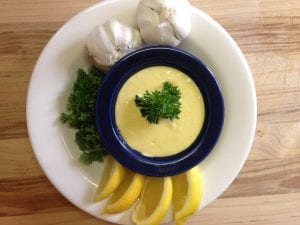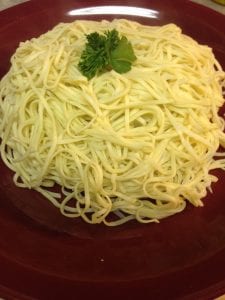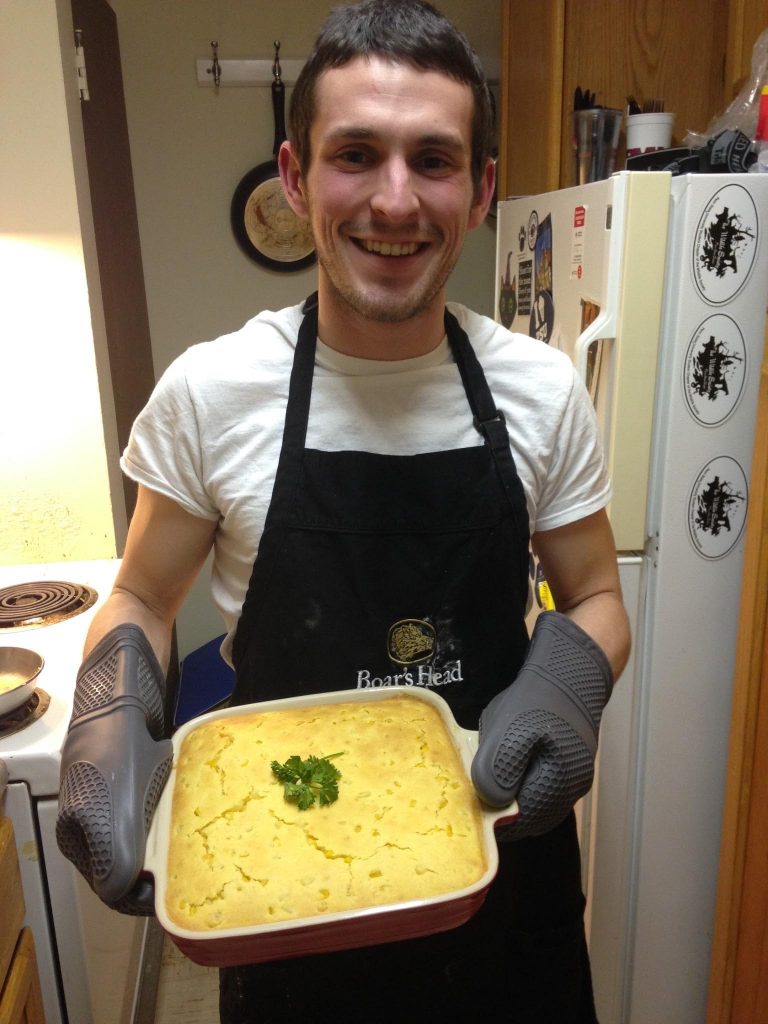The following story of recovery and hope comes from Alex, who has found a creative way to help himself recover from an eating disorder. Alex has started the blog The Recovery Kitchen where he details both his delicious recipes as well as his own journey in recovery. Today’s post details his personal struggles and triumphs with an eating disorder. We are so grateful that Alex is sharing his experience with us at rtor.org.–Veronique Hoebeke, Associate Editor
It’s Halloween night at Penn State University. Students are dressed up in wild costumes and celebrating the Football team’s win earlier that afternoon. Sounds like a pretty good Saturday night, huh? It must have been, but I couldn’t tell you. While the rest of the student body seemed to be having the time of their life, I felt as if I was losing mine.
It’s a night of fun, friends and eating candy–and I’m leaving College to go home. When my parents and I pulled away from my apartment complex I wept. I couldn’t hold it in any longer, I was leaving the school I love behind. I had been holding on for so long but it was time to let go.
My eating disorder started the summer before my senior year of college. It started by cutting out sugars and sweets in my diet. Then fats. Then red meats. Then carbs. By the time I got to school I was 20 pounds underweight. I went to the Student Health Center because I was in a really really low place. They weighed me. They took blood. They gave me an EKG. “You may have an eating disorder,” said one woman. “That can’t be possible,” I replied. “I eat 3 meals a day and besides, I’m a man… men don’t get eating disorders” (I actually said this…I was unaware at the time, to say the least).
I wasn’t lying when I said I was eating 3 meals a day, but those meals consisted mainly of veggies, fruits and occasionally tofu or tuna. The eating disorder reared its ugly head and only became worse. The weekly meetings with my doctor and nutritionist were becoming more serious. I tried to follow a meal plan but I was in too deep. The day before I left College, I went to the ER for awful stomach pains–at the time I thought were because I ate something spicy (again, still in denial).
After talking to my doctor, I swallowed my pride and decided to go home. As I left, the doctor told me “Hershey Medical Center has a great program, I think you’ll find it really helpful, Alex.”
As my parents and I drove further and further away, a fire was lit inside me (and no, it wasn’t because I ate spicy food). I didn’t realize at that time but this spark started that night of Halloween and has been burning ever since I stepped forward toward recovery.
Fast forward about a week as I stood at the doors of the ED Treatment Clinic run by Hershey Medical Center. I spent the next 2 months living with my roommate’s parents who lived close to the clinic. I owe so much to them, without their generosity I don’t know what I would have done.

When I stepped inside I was scared, nervous, sad–basically all the emotions that come with being in a place that you don’t want to be. I began the Partial Hospitalization Program (PHP) which was 8 hours Monday through Thursday with a shortened program on Friday. That first day, the fire inside me grew when I realized what I was missing. I was beating myself up over the fact that while my friends were living the life at Penn State, I was essentially stuck in program talking about my feelings all day. But slowly, I channeled that self-struggle into motivation for getting back to school. I was beginning to come to terms that I was in fact anorexic and I was the only person that was holding myself back. And… I had to come to terms that the only way to begin the healing process was to eat. “Food is medicine” as they like to say.
I loved to cook even during the darkest days of my eating disorder. The only problem was I’d be happy to make other people a savory meal- I just wouldn’t eat it. I grew up with great cooks and bakers in my family. My Mom, Poppop, Nana and Uncle are incredible chefs and I hope to be as good as them one day. When I was home my mom asked, “Alex don’t you miss eating pierogies? You used to love them.”
“I did,” I replied. “I mean, I do love pierogies, I’m just not ready for them.” At the time it may not have made sense to my Mom but throughout my treatment and to this day, I have family and friends that don’t question it–they just support me. I then bargained with my mom, “Next time I eat pierogies I’m not using the frozen kind. I’ll make them from scratch.” And with that promise, The Recovery Kitchen was born.
I spent the next 2 months in treatment at Hershey and learned so much about myself and others along the way. I met amazing women and men while I was there and all my thoughts of what an eating disorder is “supposed to look like” changed. You get to know the people in your program pretty well–I mean you are with them for nearly 40 hours a week. We learned each other’s fears, insecurities and struggles. We laughed together. We cried together. Most importantly we supported each other. You get a sense of love for the people there–a love in the sense that you’d give anything to see them recover. It’s been nearly 8 weeks since I left the program and not a day goes by that I don’t think of the heroes I met in treatment.
The turning point of my time in Hershey was on a Monday night after we had all eaten a challenging dinner. I sat in my chair, uneasy with the full feeling in my belly. But then it hit me–this pain of feeling full goes away after 10 or 20 minutes. But the pain of being away from Penn State had been constantly bothering me for the past two months. It was at that point that I realized that it was time to stop letting the eating disorder take away the good things in my life. The fire inside me grew, and I felt my heart beat a little stronger.
The day I was discharged was hard. I was happy to finally be on the right path but I was worried about leaving program. But that fire was leading me back to Penn State. Shortly after I was discharged I made pierogies–and ate them. I knew I had to keep this positive momentum going.

Once I got back to school in the spring, I decided to start my blog, The Recovery Kitchen. I needed a positive outlet to re-establish a healthy relationship with food. I like to say that my blog is not a “low-fat/low-carb/diet blog.” The Recovery Kitchen was founded on the ideas that “food is medicine” and “food is love”. I’m fairly new to blogging so The Recovery Kitchen is pretty basic but I hope by sharing my story I can inspire both people with or without an eating disorder. I’ve told my roommates that if even one person is inspired by my blog then it was well worth it. Aside from recovery, my blog also acts as a journal of my adventures in trying new recipes. Cooking, much like recovery can be a challenge, but in the end it’s well worth it.
I’ll be honest–I still have bad days. Recovery is a marathon, not a sprint. But I’m learning to shift my negative ED thoughts by using creative outlets. I also try to be mindful every time I’m in the kitchen. I once told my roommate, “Cooking nearly ended my life, but now it’s saving my life.” My wish, for anyone struggling with any kind of physical or mental disorder, is to find a positive outlet in your life- and not let the negatives control your joy.
Alex
therecoverykitchen.alex@gmail.com
Phone: 267-746-1003
Blog: therecoverykitchen.blogspot.com
instagram.com/therecoverykitchen
Subscribe to our e-newsletter for more mental health and wellness articles like this one.
SUBSCRIBE NOW
Recommended for You
- How a Health Cleanse Can Reset Your Body and Mind - April 16, 2025
- The Truth about Relapse in Addiction Recovery - April 14, 2025
- The Power of Peer Support in Mental Health Recovery - April 10, 2025






Alex thank you so much for sharing your recovery story. I am so impressed with your courage and talent. I also loved that you said recovery is a marathon not a sprint.
Alex is very inspiring and I believe his efforts will help many young men and women deal with this serious problem. My favorite part of his article was the last part where he advises folks struggling with mental illness to find a positive outlet in their lives and not let the negative take over.